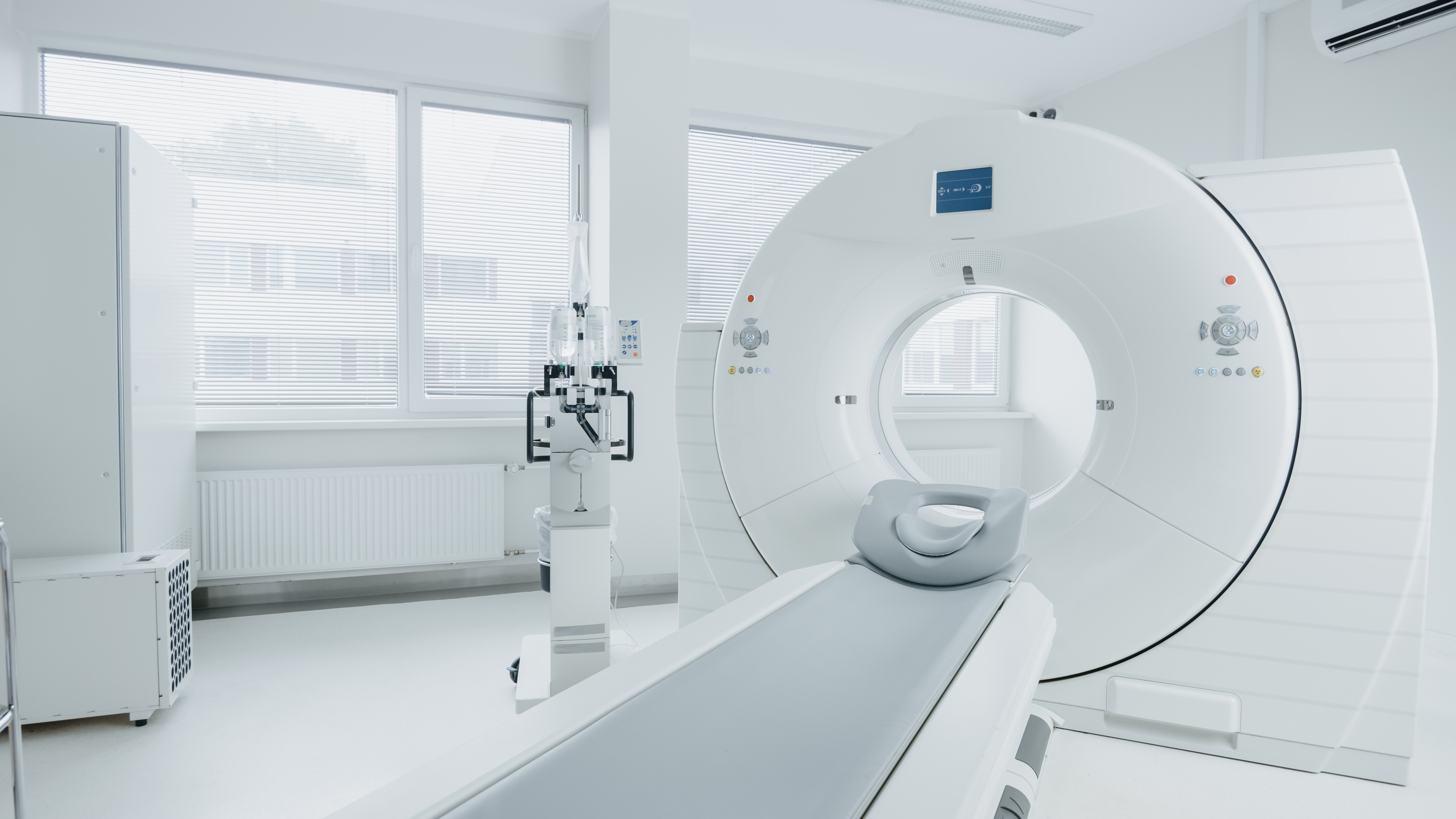COVID-19 vaccination status. SEE OUR UPDATES
CT
A Computed Tomography (CT) scan produces image slices through the body, enabling high resolution imaging and advanced visualisation of bone, soft tissue structures and blood vessels.
Preparation
- CT scans usually require an appointment. To make a booking, please call
(02) 9044 3200 or request a booking online. - Please advise us if you are, or may be pregnant.
- You will be informed of any necessary test preparation.
- Remember to bring your referral, Medicare and Pension/Health Care cards and any previous imaging relating to the region being scanned. If you do not have films, please advise us of the name of your previous imaging provider, so that we may attempt to access them electronically.
- You are not required to bring previous imaging if it has been performed at St Vincent’s Clinic Medical Imaging & Nuclear Medicine.
- If you have a recent eGFR blood test result, please bring the result to your appointment.

Your Results
When you first register with us, you will be invited to access SVCMI Patient, our patient app that enables our patients to securely access their images and reports.
See here for more information.
At the completion of your examination, you do not need to wait for images. You will receive the images into your SVCMI Patient app, approximately one hour after your scan is completed, and the report 4-6 days later. Your referring doctor will receive your results as soon as the report is finalised by our radiologist.
We recommend that you always return to your referring physician to discuss your results.
To download the app, go to your app store and select SVCMI Patient.
For the desktop version click here.
CT Considerations
At St Vincent’s Clinic Medical Imaging, we use the latest techniques to ensure our patients receive the lowest dose reasonably achievable. For CT examinations you will be exposed to a small amount of radiation so if you are pregnant, please discuss it with your referring physician.
While iodinated contrast used in CT is considered very safe, there is a small risk that you may have an allergic reaction . Minor reactions include hives and itching, with more serious reactions being rarely occurring. Our staff are trained in performing safety checks prior to contrast administration, to minimise any risks.
At St Vincent's Clinic Medical Imaging all contrast examinations are conducted under the supervision of radiologists and support of medical officers of St Vincent's Private Hospital.
What to Expect
You may be asked to change into a gown to avoid parts of your clothes affecting the scan.
At St Vincent’s Clinic Medical Imaging, we use the latest techniques to ensure our patients receive the lowest dose reasonably achievable. For CT examinations you will be exposed to a small amount of radiation so if you are pregnant, please discuss it with your referring physician.
Many CT examinations require an injection of an iodinated contrast material to enhance blood vessels and organs. For these tests, you are required to fast (not eat or drink) before your appointment. Fasting for 2–4 hours is common. While the iodinated contrast used for injections is considered very safe, there are precautions that must be taken if you have poor kidney function, diabetes. or specificallergies.
While iodinated contrast used in CT is considered very safe, there is a small risk that you may have an allergic reaction. Minor reactions include hives and itching, with more serious reactions being rarely occurring. Our staff are trained in performing safety checks prior to contrast administration, to minimise any risks.
At St Vincent's Clinic Medical Imaging all contrast examinations are conducted under the supervision of radiologists and support of medical officers of St Vincent's Private Hospital.
Tests investigating your abdomen may require you to drink an oral contrast solution, which will also require fasting.
During the test, you will need to lie down on a CT scanner table. Low dose x-rays are produced during imaging, as the scanner rotates around your body and the table moves slowly. You must remain very still in order to prevent any blurring of the images and may be asked to hold your breath briefly, during the imaging. Full instructions will be given, prior to your scan.